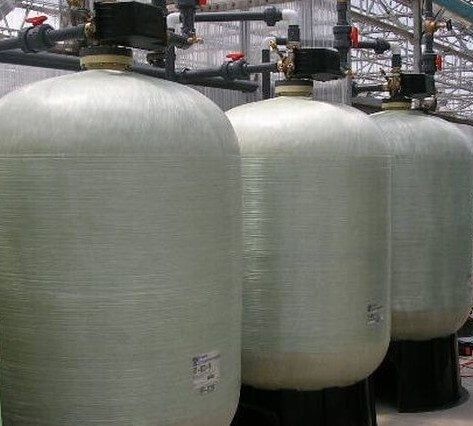Four Benefits of Industrial Water Filtration Systems for Organizations

Industrial facilities and smaller commercial businesses can produce a wide variety of contaminants in their wastewater streams. Industrial water filtration systems can be an integral part of an industrial or commercial process water or tertiary wastewater treatment system application.
Below, we listed four benefits of using industrial water filtration systems for organizations.
Benefits
Reduction of suspended solids
This one is a bit of a no brainer really. The entire basis of most industrial water filtration systems is to reduce the concentration of suspended solid particulates and turbidity in a source water stream. Most of the time with filtration, it’s really just a great way to lighten the load on down stream systems in process water applications. Some industries such as food/beverage, pulp/paper, textiles and oil/gas produce pretty high levels of suspended solids that one single treatment method is not going to be able to handle on its own. Filtration makes that easier.
Reduction of other contaminants
Depending on the method you use, filtration systems do not just work on suspended solids or turbidity issues. Different types of filtration systems can also remove pollutants like trace metals, ammonia, volatile organic compounds, iron, manganese, and other pollutants depending on the properties of the system in question. These filtration systems are able to reduce these particular contaminants to allow for better efficiency of downstream polishing water treatment systems.
Greater treatment efficiency
Used as a supplement to other treatment systems, filtration units can help improve the efficiency of the overall treatment. This greater efficiency comes down to either pre-treatment or polishing. As a pre-treatment, industrial water filtration systems reduce the concentrations of contaminants for other polishing treatment systems in process water and wastewater applications. Many of these downstream polishing systems operate more effectively at lower concentrations. Therefore, the contaminant removal rates can be increased in this way.
In certain cases, these filtration systems can be used in a polishing process step. This is typically the case in wastewater treatment applications in commercial/industrial facilities after clarification of an MBBR biological process or electrochemical treatment process.
Less equipment maintenance
Industrial water filtration systems when operated in maximum efficiency conditions, typically provide for lower equipment maintenance of downstream treatment processes. They are usually designed to operate in such a manner for this very reason.
Specific Benefits
The benefits listed above have slightly different meanings for different types of filtration systems. Below, we will discuss two specific benefits in particular, one method is an entirely physical type of filtration while the other utilizes both physical and chemical.
Centrifugal
Centrifugal systems are entirely mechanically based filtration systems, spinning the influent fluid at high enough speeds to force solids to the outer wall. A filter within the chamber keeps excess solids from getting into the exit stream of filtered water.
The mechanism of centrifugal filtration units allows for efficient suspended solids filtration. They are able to handle higher suspended solid loads than most other types of filters. These industrial water filtration systems make excellent pretreatment filters for TSS and turbidity removal with the added bonus of being compact. Therefore, while there specific purpose is to remove suspended solids unlike some other methods, centrifugal filters are best equipped to handle high solids and turbidity industrial applications.
Media
Industrial water filtration systems utilizing filtration media, combine physical filtration with some level of chemical filtration by way of adsorption. The most common media filters use sand, but there is also anthracite, activated carbon, and zeolite and others based on the contaminant to be removed. All of these filtration medias reduce solids, but depending on which one is used they can also filter out chemical or organic pollutants as well.
Anthracite and sand are often used together in multimedia filters to improve filtration quality thanks to the different physical structures of these two materials.
Activated carbon has become popular for the removal of chlorine as well as other organics and chemicals including benzene and volatile organic compounds (VOC).
Natural Zeolite makes for an excellent replacement for sand filters as it is less dense, can provide greater filtration efficiency with less water consumed in its backwash cycles. It can also reduce other chemical compounds and certain trace metals with its ion exchange capabilities.
These qualities make industrial water filtration systems utilizing filtration media capable of all four of the benefits listed above. This is namely the reduction of other contaminants that cannot be removed by physical filtration alone. For instance, zeolite can also remove ammonia from wastewater streams.
Industrial water filtration systems may seem like a simple and ineffective solution for more complex applications. However, in using these systems as a supplement to more advanced treatment methods, it has the ability to help increase the efficiency of the entire operation and reduce overall operating costs. Industries and commercial operations alike can benefit from using industrial water filtration systems in their water treatment applications.
Want to know more about the benefits of industrial water filtration systems for your companies process water or wastewater application? Contact the water filtration experts at Genesis Water Technologies, Inc. at 1-877-267-3699 in the US, reach out to our offices abroad or connect with us via email at customersupport@genesiswatertech.com to discuss your application in more detail.

